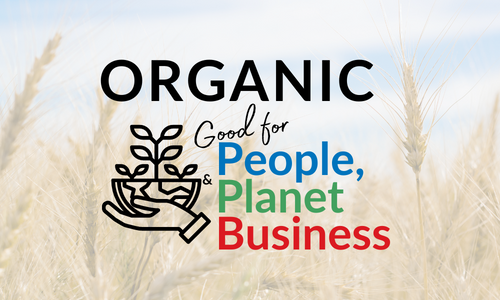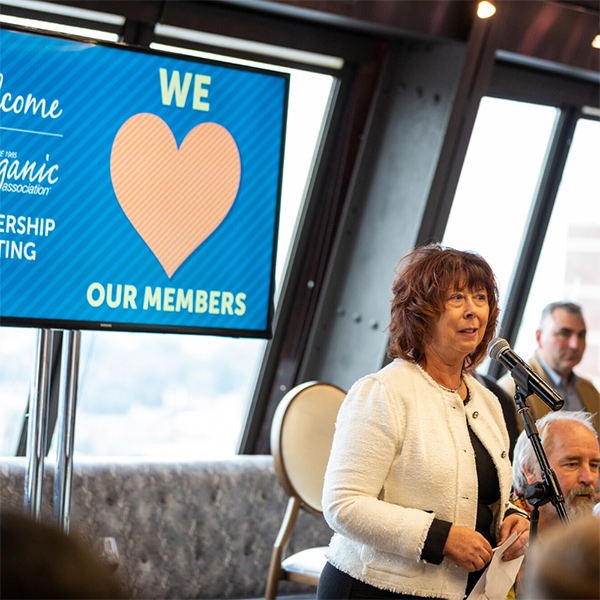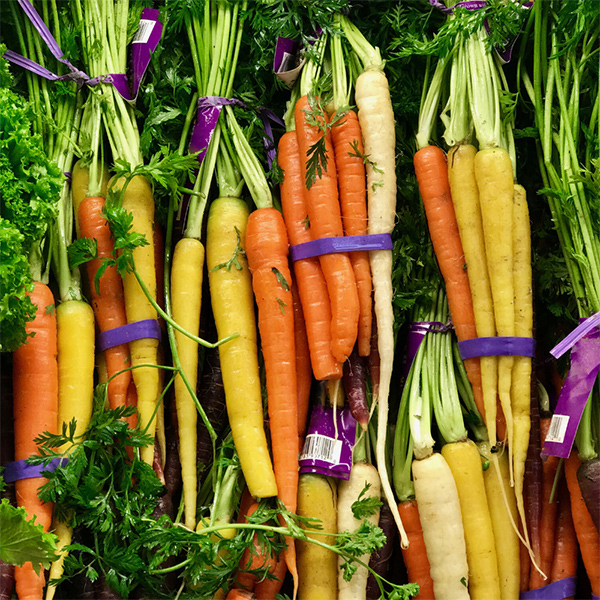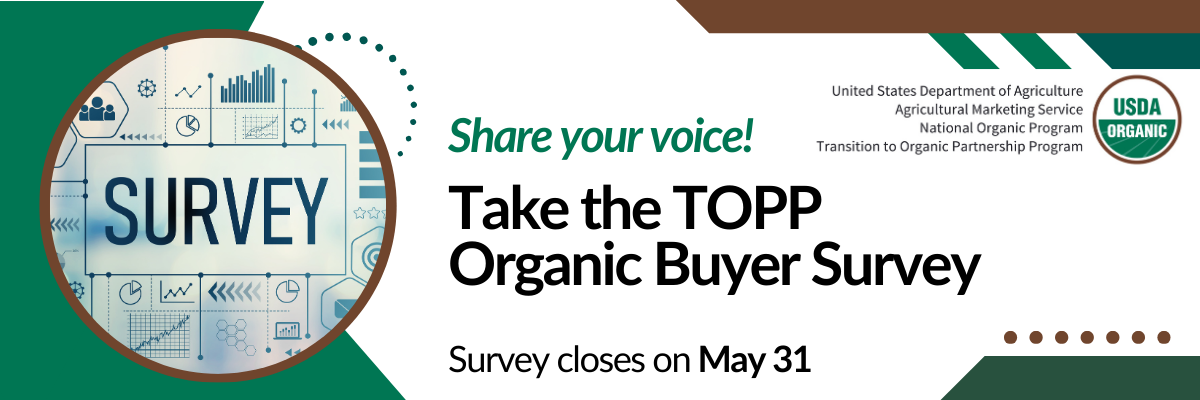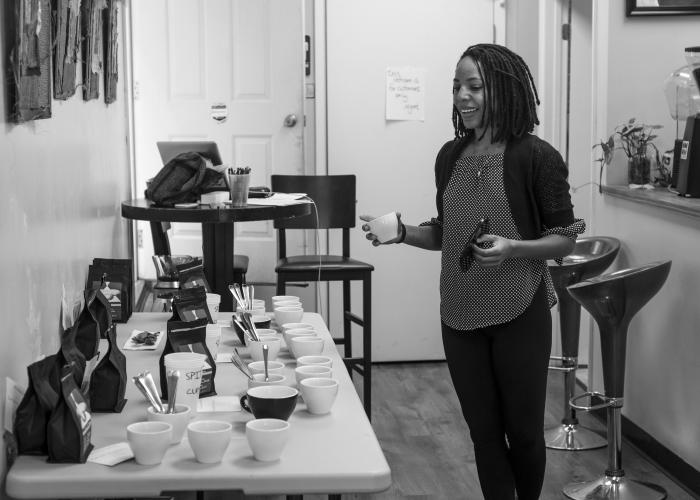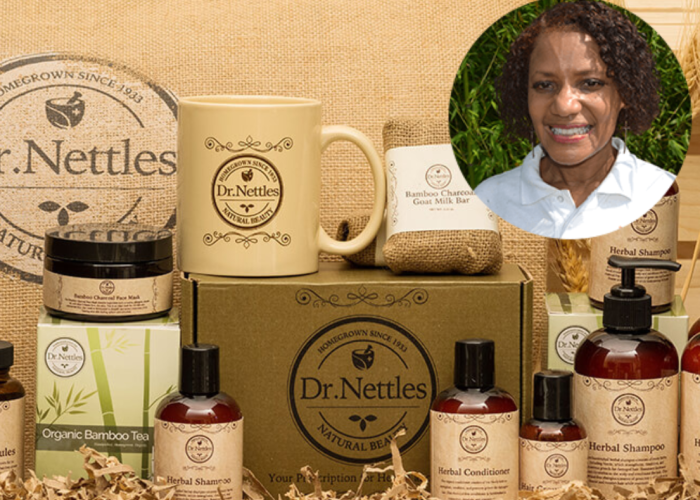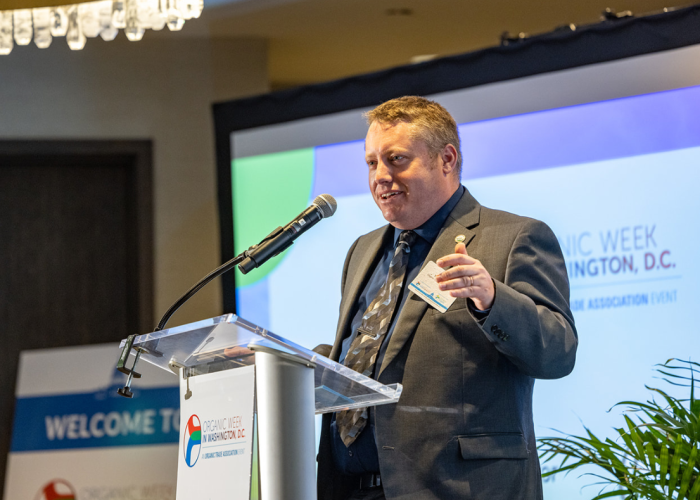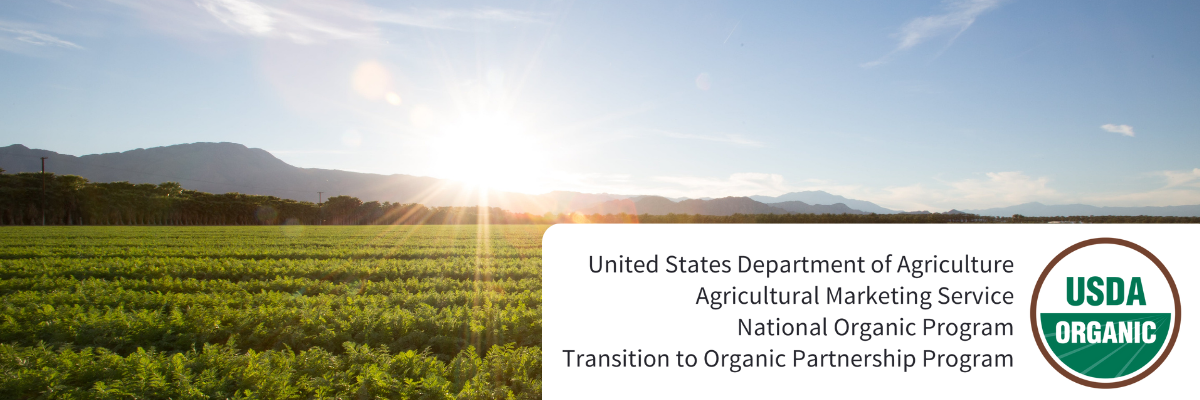
In 2023, the Organic Trade Association (OTA) was selected as a National Partner for the U.S. Agriculture Department’s (USDA) Transition to Organic Partnership Program (TOPP), a key component of USDA’s broad multi-agency push to expand organic agriculture by providing more direct support and technical assistance to producers across the United States.
This work is supported through the United States Department of Agriculture (USDA) Transition to Organic Partnership Program (TOPP). TOPP is a program of the USDA Organic Transition Initiative and is administered by the USDA Agricultural Marketing Service (AMS) National Organic Program (NOP).
Green
TOPP is a critical part of USDA’s $300 million Organic Transition Initiative (OTI) announced in 2022 to help foster organic agriculture and make much-needed technical assistance available to transitioning and existing organic farmers. OTI is the largest single investment in organic agriculture ever made by the USDA. USDA and its partnering organizations through TOPP provide locally based farmer training and education in six regions across the United States. Learn more about the work of these six TOPP Regional Centers at organictransition.org, which includes resources, regional events, and mentorship opportunities.
In addition to the six regional partnerships, two national-level TOPP agreements supplement and collaborate with the regional work, providing nationally focused coordination and services. As the National Lead for one of these agreements, OTA is collaborating with our core partners in three priority program areas: market development technical assistance for farmers and handlers, buyer and seller discovery facilitation, and handler transition training and education. Learn more about each of these three programs areas below.
Green
Program Area I: Market Development Technical Assistance
The Problem:
The barriers to successful entry into the organic marketplace extend beyond adopting organic production and handling techniques, navigating transition, and getting certified. Organic and transitional markets are different than conventional and require specific knowledge of the information sources, market players, and market dynamics.
The Solution:
- Provide market development technical assistance through workshops, tools, and resources for transitioning organic producers, both in person and virtually.
- Educate and empower farmers by training them on relevant marketing strategies, marketing assessments, price discovery tools, and other relevant topics. These trainings will help farmers succeed in the organic marketplace by understanding market requirements, dynamics, risks, and opportunities.
- Tailor tools and host workshops to reach producers of specific crops, market segments, or regions, and in collaboration with the TOPP regional centers.
The Outcomes:
- Empower non-organic farmers to make informed decisions and effectively assess market context, risk, and opportunities based on the transitional and organic marketplace.
- Increase the confidence of transitioning and organic producers and handlers when navigating the transition process.
- Empower in-transition and organic producers to make optimal agronomic assessments based on organic and transitional market context, risk, and opportunity.
- Increase the success of transitioning and organic producers in establishing market channels and segments.
Core Partner:

Blue
Program Area II: Supplier/Buyer Discovery Facilitation
The Problem:
As OTI grows the transitioning and organic domestic supply, producers need relevant and effective buyer discovery tools, including in-person activities and virtual spaces, to mitigate barriers to entry and risks associated with transition. U.S. organic buyers similarly need support identifying the transitioning and new organic supply to keep up with growing demand.
The Solution:
Virtual spaces and in-person activities to facilitate interactions between buyers and sellers of organic and transitional products. By encouraging connections using interactive forums, this program area will support regional and national discovery for each part of the supply chain – both for suppliers’ discovery of demand and demand’s discovery of supply. Addressing barriers to market entry from both the buyer and seller perspectives, as well as market segments and regional areas will be prioritized. OTA will collaborate with TOPP Regional Centers and the other National Partnership for both virtual and in-person activities.
- In-Person Activities will prioritize tabletop buyer-seller networking events and regional buyer tours in segmented markets (led by Rodale Institute).
- Virtual Activities will prioritize adding transitional and organic products from TOPP participants to online clearinghouses and databases, and helping buyers and sellers discover each other, empowering and enabling needed connections (led by OTA).
The Outcomes:
- Create opportunities for transitional and organic producers to find potential buyers.
- Increase the success of domestic transitioning and organic producers in the organic marketplace.
- Create opportunities for buyers to discover transitional and organic producers in virtual forums to make meaningful organic market connections.
One Important Note: The actual business relationships and negotiations between buyers and sellers will be exclusively managed by the parties involved without direct involvement from TOPP partners. Partners may refer to publicly available resources under the Market Development Technical Assistance programs to support these processes but will provide no direct support for business transactions.
Sign up to participate in TOPP as a buyer
Core Partner:
 | 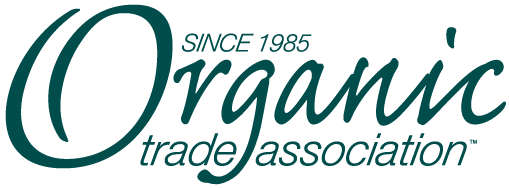 |
| In-Person | Virtual |
Blue
Program Area III: Handler Transition Training & Education
The Problem:
There are a limited number of certified organic handlers (Aggregator, Manufacturers, Processors, etc.) and the market lacks support resources for handlers entering the organic handling sector. The sector needs resources to help organic operations diversify their handling operations and comprehensive and accessible training resources for organic operations and their staff. Both small- and medium-sized operations lack resources to acquire these tools and the marketplace needs support to aid continued growth and diversification.
The Solution:
Developing and launching comprehensive training materials and educational resources, both written and video formats, to support handlers in effectively handling organic products by focusing on accessible and effective trainings that cover approaches, best practices, tools, checklists, and other materials. These resources will focus on the application of standards in practices and will be developed with TOPP National and Regional Partners to identify priority topics and segments.
- Publish written and video resources online on a centralized public hub.
- Create resources and topics that will address the critical needs of handlers, including:
- Formulating organic products
- Labeling organic products
- Handler Organic System Plans (OSPs)
- Contamination prevention
- Sanitation practices
- Commingling practices
- The National List and commercial availability
- Record-keeping and audit trails
- Storage and segregation
- Facility pest management
- Considerations and strategies for split operations
- Managing split and dedicated equipment
- The role of ERP/MRP systems in organic compliance
- Sourcing and documentation
- Fraud prevention plans, and more!
The Outcomes:
- Grow and diversify the domestic supply of fully certified organic operations and split organic/non-organic operations.
- Demystify the barriers to certification for non-organic operations.
- Equip non-organic and in-transition operations with resources to make informed business decisions and effectively assess market context, risk, and opportunities to engage in organic and transitional market channels.
- Improve the knowledge base of transitioning and organic handlers on handling requirements and making their business more efficient.
- Expand the domestic organic supply chain thereby making it more resilient and diverse.
Core Partner:
TBD

